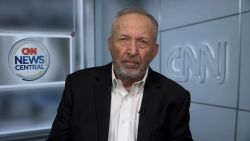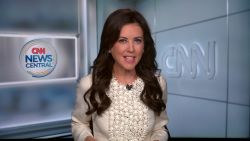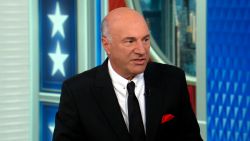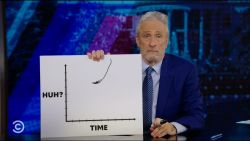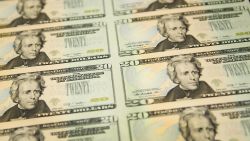Two top officials of the PGA Tour said the sport’s governing body had no choice but to reach a truce in its yearlong battle with LIV Golf and try to reach a merger with the Saudi-funded tour.
The comments came during a contentious Senate hearing Tuesday at which the truce between the PGA Tour and LIV Golf, as well as the Saudi government, were subject of harsh criticism from senators.
“Today’s hearing is about much more than the game of golf. It’s about how a brutal, repressive regime can buy influence, and indeed even take over a cherished American institution to cleanse its public image,” said Permanent Subcommittee on Investigations Chairman Richard Blumenthal, a Connecticut Democrat.
But Ron Price, the chief operating officer of the PGA Tour, and Jimmy Dunne, a board member of the tour’s governing body, both said that the framework of the planned merger was the best chance to allow the PGA Tour to keep some measure of control over the sport.
“I really understand Sen. Blumenthal’s concern about having them take over,” Dunne said in comments before the committee. “They have an unlimited horizon and an unlimited amount of money. It isn’t like the product is better. It’s just that there’s a lot more money that will make people [players] move [from the PGA to LIV]. I’m concerned with what the senator is worried about. But I’m concerned if we do nothing we’re going to end up there, they’re going to end up owning golf. They can do it.”
Dunne helped to negotiate the agreement announced in June. He and Price both stressed to the committee that final deals of the merger have yet to be worked out. Both the PGA Tour and LIV Golf have dropped lawsuits against each other and announced a framework of an agreement that would create a new for-profit entity to control the sport.
‘An existential threat’
Republican ranking member of the subcommittee, Ron Johnson of Wisconsin, defended the PGA Tour’s position that it had to try to negotiate a deal with the Saudis. He pointed out that the Saudi Public Investment Fund, which is funding LIV Golf, has 500 times the financial resources as the PGA Tour.
“From a commercial standpoint, it’s not a fair fight. The PGA Tour accurately viewed LIV as an existential threat,” Johnson said in his opening remarks. “It would be grossly unfair to expect the PGA Tour to bear the full burden of holding Saudi Arabia accountable. After all, anyone who drives a car or uses oil-based products has helped fill the coffers of the Saudi Public Investment fund.”
But Blumenthal said that the Saudis should not be able to use their money to burnish their tainted image and to take over a major US sport. The committee released a 276 page report with details of the legal battle and the negotiations between LIV and the PGA Tour. The report includes emails, text messages and legal agreements between the two sides.
In one exchange from this past April, British businessman Roger Devlin reached out to Dunne to say, “I believe we have a window of opportunity to unify the game over the next couple of months, otherwise I fear the Saudis will doubledown on their investment and golf will be split asunder in perpetuity.”
But critics of the deal on the Senate subcommittee said the Saudis’ financial might did not excuse the decision of PGA Tour officials to reach an agreement with LIV Golf or the Saudi PIF.
“Today is about sportswashing,” Blumenthal said. “It’s also about hypocrisy. It’s about how vast sums of money can induce individuals and institutions to betray their own values and supporters.”
And he said if this deal is allowed to proceed, other US sports teams and the league will also be at risk.
“Other sports and institutions that could fall prey if their leaders let it be all about the money,” he said. “Sports are central to our culture and society. They have huge implications for our way of life … To have them taken over by a repressive foreign regime is certainly a matter of our national security.”










